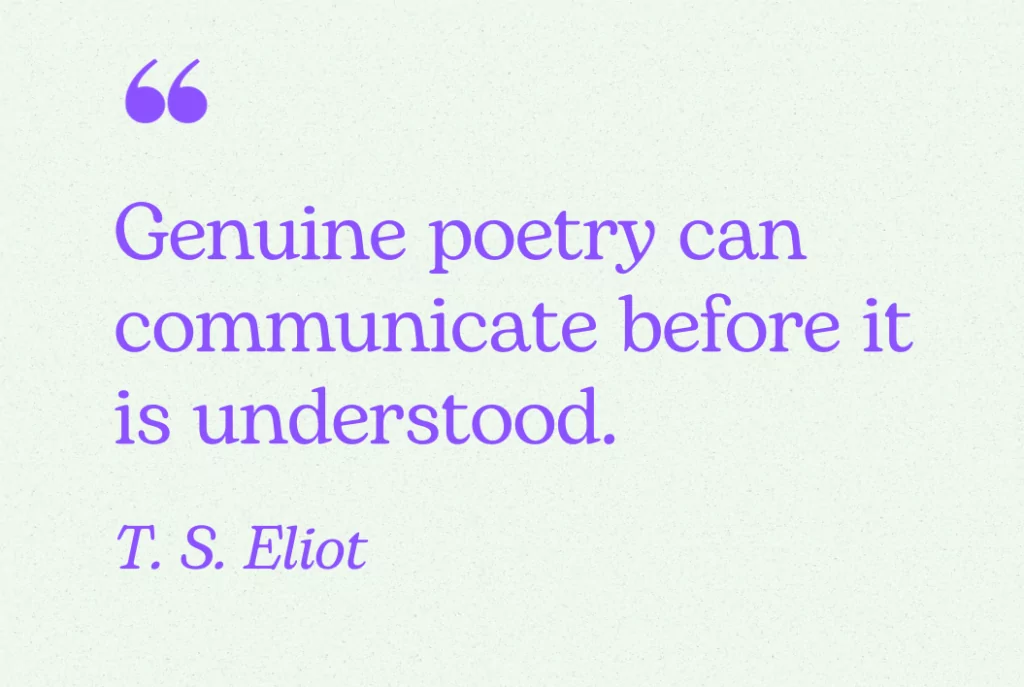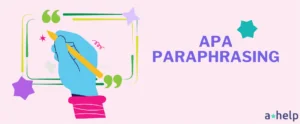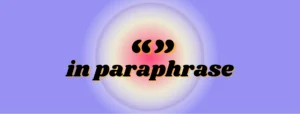Poetry often wraps profound meanings in a blanket of metaphors, rhythm, and complex imagery. Wait, what? Exactly. For many students, the complicated structure of poetry stops them from really appreciating it. However, there is one thing that might help, and it is paraphrasing. Paraphrasing, which basically means rewording and interpreting in a new way, helps us understand and appreciate poetry better.

✅ AI Essay Writer ✅ AI Detector ✅ Plagchecker ✅ Paraphraser
✅ Summarizer ✅ Citation Generator
Why is Poetry Sometimes Hard to Get?
If you ever wondered why is it difficult to read poetry, then we have the answer for you and it is quite simple – its use of language. Unlike prose, poetry often uses old-fashioned terms, abstract metaphors, and rich symbolism. Every word in a poem is carefully chosen and can carry multiple meanings. Moreover, poets frequently ‘bend’ the rules of grammar for artistic effect, which makes the message even harder to get. Well, it is also the cultural and historical contexts in which poems were written, because they can create a barrier for modern readers. Not many people now will understand the everyday challenges of the person from a couple hundred years ago, so it’s understandable why certain poetry is hard to relate to and therefore feel.
How Paraphrasing Poems Helps Readers Understand Better
Paraphrasing turns the complex and thought to grasp language of poetry into a simpler, more digestible form for readers. This process involves carefully rewriting the content of a poem in a way that keeps its original intent and essence, but choosing a more clear form for it. This way, paraphrasing simplifies the poem’s structure, and makes its central themes and emotions more accessible. This approach is like translating poetic language into everyday speech, so that the gap between the poet’s intricate expressions and the reader’s understanding is if not zero, but minimal at least.
Consider using the rewording tool by AHelp when struggling with paraphrasing: it will help you better grasp the idea while streamlining the process.

Preserving the Essence Through Archaic Terms
One significant aspect of poem paraphrase is its ability to maintain archaic terms that are almost central to the poem’s meaning. While the language of poetry can sometimes be ancient or even obscure (we see you, Shakespeare), these words often carry specific connotations and historical context. Thus, they are important to the poem’s integrity. Paraphrasing helps in keeping these terms while explaining their meaning in a modern context, so that the original essence and richness of the poem are not lost in translation, but the readers get it.
Personal Interpretations and Creative Thinking
Poetry uses similes and metaphors, which can be open to multiple interpretations. Paraphrasing encourages readers to create their own meanings for these figures of speech. After reformulating these poetic devices in their own words, readers engage more deeply with the text, which in turn create a more personal connection with the poem. This active engagement not only helps with basic understanding but also makes the experience of reading poetry more intimate and rewarding. After all, you’ve spent all that time trying to get it, might as well enjoy it.
Apart from that, paraphrasing inspires readers to come up with their own allusions and paradoxes when reading poems. This creative process not only helps you to get to know the poem and the author’s feelings and emotions, but also encourages a more active form of reading. As readers rephrase the text, they might see new insights and interpretations of the words.
Simplifying Figurative Language
Figurative language is a cornerstone of poetry and is often used to deliver complex emotions and ideas. Paraphrasing plays a key role in helping readers understand the various forms of figurative language, such as hyperbole, irony, and personification, so you might use a paraphrase helper. Readers can grasp the hidden meanings and themes that the poet intended to tell by breaking down these elements into simpler, more direct language.
Comparing an Original Poem and Its Paraphrased Version
Paraphrasing poetry is a great exercise aimed at training your brain to pick up certain clues to uncover the meaning behind the words. It makes the whole process far more enjoyable, so let’s dive into the examples.
Original Poem: “Hope is the thing with feathers” by Emily Dickinson
“Hope” is the thing with feathers
That perches in the soul
And sings the tune without the words
And never stops – at all –
Paraphrased Version: Hope is like a bird with feathers that sits in our soul. It hums a wordless melody and never ceases to sing, no matter what.
In this paraphrase, Dickinson’s metaphor of hope as a bird is maintained, but the language is simplified for clarity. The essence of hope being an ever-present, uplifting presence in the soul is preserved, while the abstract notion is made more tangible.
Original Poem: “The Road Not Taken” by Robert Frost
Two roads diverged in a yellow wood,
And sorry I could not travel both
And be one traveler, long I stood
And looked down one as far as I could
To where it bent in the undergrowth;
Paraphrased Version: In a forest with yellow leaves, I came upon two separate paths. Regretfully, I couldn’t take both routes. As a lone traveler, I stood for a long time and gazed down one path as far as possible until it disappeared in the shrubbery.
This paraphrase simplifies Frost’s language, making the dilemma of choosing a path in life more explicit. The essence of indecision and the metaphor for life’s choices are maintained, but the imagery and choice of words are made more accessible to contemporary readers.
FAQ
Follow us on Reddit for more insights and updates.





Comments (0)
Welcome to A*Help comments!
We’re all about debate and discussion at A*Help.
We value the diverse opinions of users, so you may find points of view that you don’t agree with. And that’s cool. However, there are certain things we’re not OK with: attempts to manipulate our data in any way, for example, or the posting of discriminative, offensive, hateful, or disparaging material.